Wayne Warriors Fall 2023

contents
Darrell Dawsey, editor-in-chief
Tracy Boyce
DESIGN
Matthew Balcer
PHOTOGRAPHY
Eric Eggly
Paul Hitzelberger
Have an idea for Warriors magazine?
Contact us at engaged@wayne.edu.
Wayne State University Board of Governors
Mark Gaffney, chair
Shirley Stancato, vice chair
Danielle Atkinson
Bryan C. Barnhill II
Michael Busuito
Marilyn Kelly
Anil Kumar
Terri Lynn Land
Kimberly Andrews Espy, ex officio

Letter from the President

Let me start with myself. As the new president of Wayne State University, and the first-ever woman to lead the university, I’m honored and excited to have the opportunity to join a community that enjoys such an abundant legacy of community engagement and impact. Throughout its more than 150-year history, Wayne State has played a key role in uplifting Detroit through our research, economic investment and, most centrally, education of our next generation of leaders. The university has pursued this mission since its founding in 1868, and I am privileged to now have a chance to join such a rich tradition.
I’m also pleased to introduce you to the latest issue of Warriors, Wayne State’s community engagement magazine. As always, the magazine offers a colorful, compelling and in-depth look at the people and programs in our university dedicated to serving Detroit and Detroiters in a multitude of ways. In our cover story (p. 8), for instance, we explore how a decade-long bond between three of the College of Nursing’s most dedicated professors has turned them into a collective force for top-notch learning and mentorship in professional pathways that promote success for all students, and advocates in our shared efforts to advance equitable health outcomes for all.

WWJ Newsradio highlights ‘Warriors in the Community’


Commuters and news junkies in metro Detroit are learning more about how intimately and extensively Wayne State is working to help solve the myriad challenges facing our community and state.
A new, weekly segment, “Warriors in the Community,” sponsored by Wayne State University, airs on Mondays during prime drive time at 5:12 p.m. on WWJ Newsradio 950 AM. The station reaches more than 352,000 listeners each week.
In the two-minute segments, Darrell Dawsey, WSU associate director of community communications, interviews faculty, staff and students about how they make a difference in the lives of others. The segments kicked off in April.
news briefs
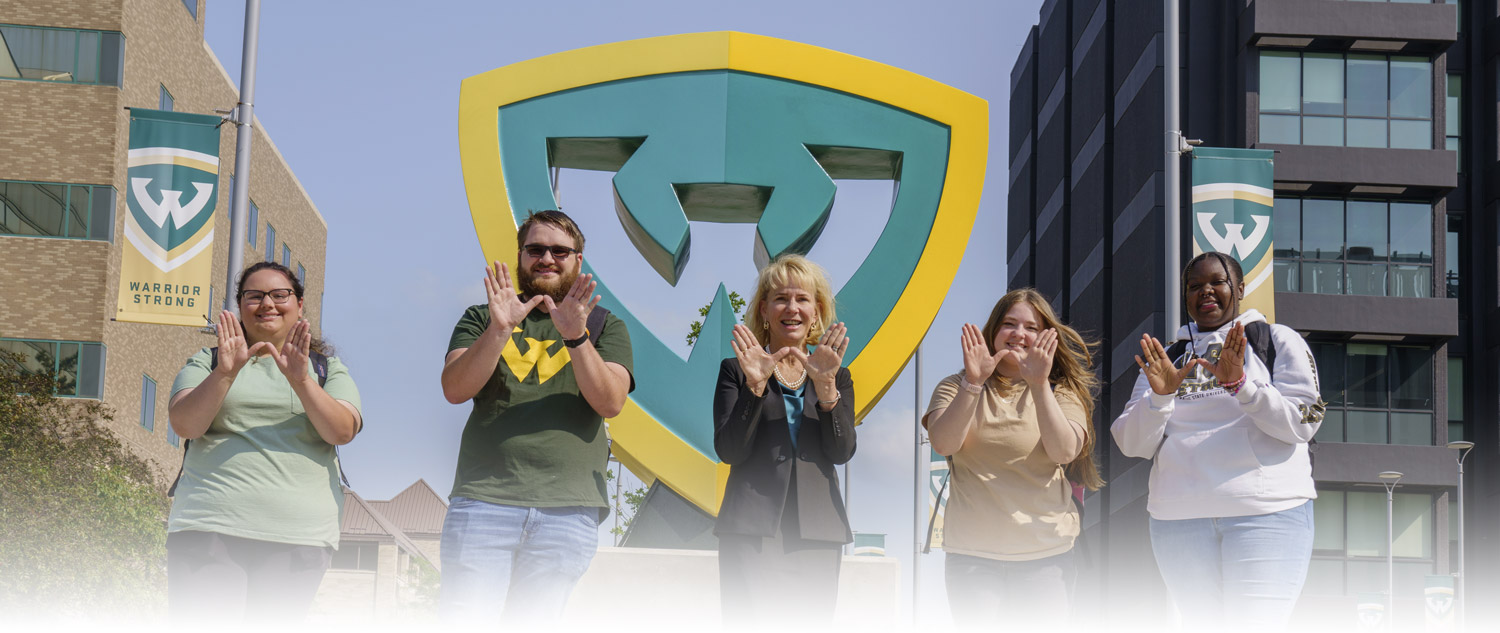
Kimberly Andrews Espy elected 13th president of Wayne State University
Espy succeeds M. Roy Wilson, who served as president since Aug. 1, 2013, and announced in summer 2022 that he would not renew his contract. Espy is the first woman to serve as Wayne State’s president.
“Upon receiving the news from President Wilson that he would be stepping down, we assembled a thoughtful and diverse search committee to find the next president for our university,” Gaffney said. “After a thorough search that included four publicly held presidential search listening sessions where students, faculty, staff, alumni and friends of the university assembled and provided input, the board reached a unanimous decision to elect Dr. Espy as our next president. Her strong leadership roles in higher education and research and her national reputation for advancing institutional, academic and student success will be invaluable to maintaining the momentum of Wayne State into the next decade of growth and beyond. We are confident the skills she brings to this important leadership position will keep our university advancing toward its vision of being a preeminent public, urban research university. We are thrilled that she’s joined us here at Wayne State and we know our community will be as well.”
Wheatley named head football coach
“I am beyond excited to welcome Coach Wheatley and his family to the Wayne State community,” stated Wallace. “Coach Wheatley has a passion for developing the student-athlete not only on the field, but off. His ability to mentor men, develop talent and recruit will elevate our football program. I’m looking forward to watching his leadership as he guides our Warrior student-athletes into a new era.
“I would be remiss if I didn’t thank CarrSports Consulting for its professionalism and guidance throughout the search process as well as the search committee, which consisted of staff, coaches, faculty and football alumni,” remarked Wallace.
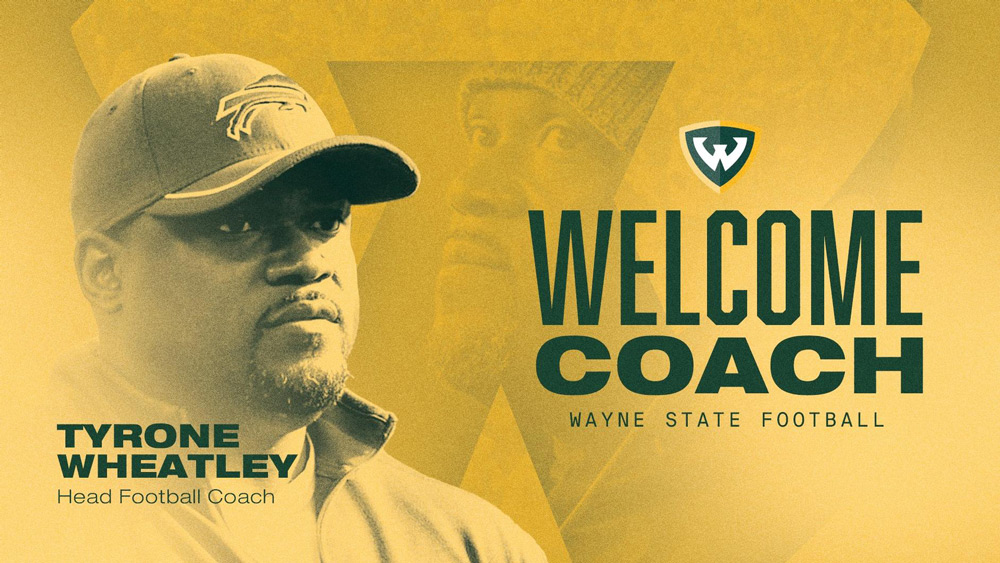
The Power of 3

So, Walker spilled to McNeill about the difficulties she was facing, about the workload, the time demands and the pressure of finishing the doctoral program on time.
“I was frustrated, tired, pissed off, ready for it to be done,” Walker recalled. “And Cynthera was on the phone like, ‘Well, what do you have to do?’ And I was like, ‘She told me to rewrite these last four pages and have it to her office by tomorrow, and blah, blah, blah, blah, blah.’ So I’m going on and on and on. She’s listening quietly, going, ‘Mm-hmm’ or whatever, and I’m just giving everyone the business. All of a sudden, I was like, ‘Girl, hold on. Someone is at my door!’”
Book by WSU nursing professors becoming authoritative source on urban, racial health disparities
For more than a decade, Wayne State University nursing professors Cynthera McNeill, Tara Walker and Umeika Stephens heard the grim predictions, stark warnings and dire research findings that define the racial health gap in America. Year after year, they listened as colleagues spun disheartening tales of just how poorly African Americans, particularly in big cities, fare in nearly every major health category as compared to other groups.
But the conversations about these problems were always missing something, they said — namely, answers.
“We found that there would be a gap not only in practice, but also a gap in the literature,” said McNeill, who, along with Walker and Stephens, earned her doctorate in nursing from the WSU College of Nursing in 2013. “Most of the time when you read about urban health, it’s about data. It’s about statistics of disparity. It doesn’t really talk about the lived experience. It doesn’t tell people how to really engage and build that patient/provider relationship.”
Giant Steps

Dartis Willis Sr.
Growing up on Detroit’s east side, Dartis Willis Sr. harbored big dreams of one day sprinting up and down the hardwood as a point guard in the NBA. As a youth volunteer for the YMCA, Willis spent long hours on the courts inside the organization’s gymnasium, dribbling, defending, taking jump shot after jump shot.
“Because I was a volunteer, we could go in and play when others couldn’t,” Willis recalls. “Being from the neighborhood, it was easy to grab a pair of shoes and shorts and go shoot some hoops. I played on teams at the YMCA, and it really struck a chord with me. We would go in on weekends, and we always had this dream that we were going to play in the NBA.”
Early on, though, Willis stopped growing. Stuck at what he describes as “a towering” five-foot-five-inches tall, he quickly realized that he’d have to find other ambitions. “That’s when reality set in,” he says, a shrug and a smile in his tone. “I understood the numbers and what it took. By the time I got to high school, I knew very well that I would not be the next Spud Webb.”
He would never play for a professional basketball team. Instead, Dartis Willis bought one.
More than a decade ago, Willis, who graduated from Wayne State University in 1991, purchased the Windsor Express, becoming founder and CEO of the then-expansion team in the fledgling National Basketball League of Canada (NBL Canada). In the years since, his gamble has paid major dividends as the Express — whose nickname is partly a nod to the Underground Railroad that helped free enslaved people in America, as well as an homage to the Detroit-Windsor railroads — has become one of the most successful franchises in the Great White North. The team has won two NBL Canada championships and, this past season, reached the title tournament again before falling to the London Lightning. In fact, during the eight seasons it has competed, the Express failed to reach the playoffs only once. Undoubtedly, in becoming an internationally successful entrepreneur, the scrappy kid from Detroit’s Denby High School who earned the nickname “Little Giant” while interning at a Chrysler plant has made a big impact in the ranks of Canadian pro hoops — and in just about any arena he enters.
“Prior to the Express, Windsor only had minor league hockey and other, smaller things,” says Willis. “But they’d never had a pro team. For us to bring two championships to the city and for them to give us accolades like a parade down Oullette Avenue and the key to the city is just wonderful.”
A Fresh Start
Educational Transition Coordination Program offers hope, opportunity to formerly incarcerated students.
But then, in September 2022, Byrd was released.
“When I first came home, I had nothing,” Byrd said, staring somberly into a laptop camera during a recent Zoom chat. “I had to start off in a shelter on Woodward. I had nothing but some books I came home from prison with and the prison clothes they released me with. That was it.
“My family was dismantled when I went to prison almost 30 years ago,” he continued. “I’d lost pretty much everybody that really had a connection and true love for Dale. Initially, I had started developing thoughts in my mind, sitting in that room, that it might be easier in prison.”
A New Direction
When Terrell Topps walked out of Michigan’s Deerfield Correctional Center a free man 18 years ago, he vowed he’d never go back to prison.
Before being convicted of second-degree murder in 1989 after he fatally shot a man who’d broken into his grandmother’s Detroit home and assaulted her, Topps was a talented illustrator pursuing his bachelor’s in interior architecture at Wayne State. In one fateful moment during his sophomore year, his entire life was upended, his dreams turned to ash. So, when he was finally released after nearly two decades, all he wanted to do was piece together the future he once feared was lost to him forever. For him, that meant never again going near those barbed-wired fences and 40-foot-brick walls.
“I said I’d never return,” he recalls, leaning forward on a table at a Chinese food restaurant inside the Student Center Building to emphasize his point. “I was going to get the degree I’d missed out on, and I was going to rebuild my life. I was never going back to a prison again.”
Academy Rewards
“I feel like I have come full circle,” he said. “I was trained in community outreach about 15 years ago, and I thought getting my community health worker certification would strengthen my skills. I learned how to empathize with and advocate for others, and I fell in love with serving the community.”
Detroit has long struggled with significant health disparities compared to neighboring and more affluent Michigan communities, with lower life expectancy and higher rates of chronic diseases. The COVID-19 pandemic further exposed gaps in health outcomes and the health care system.
Pride and Passion
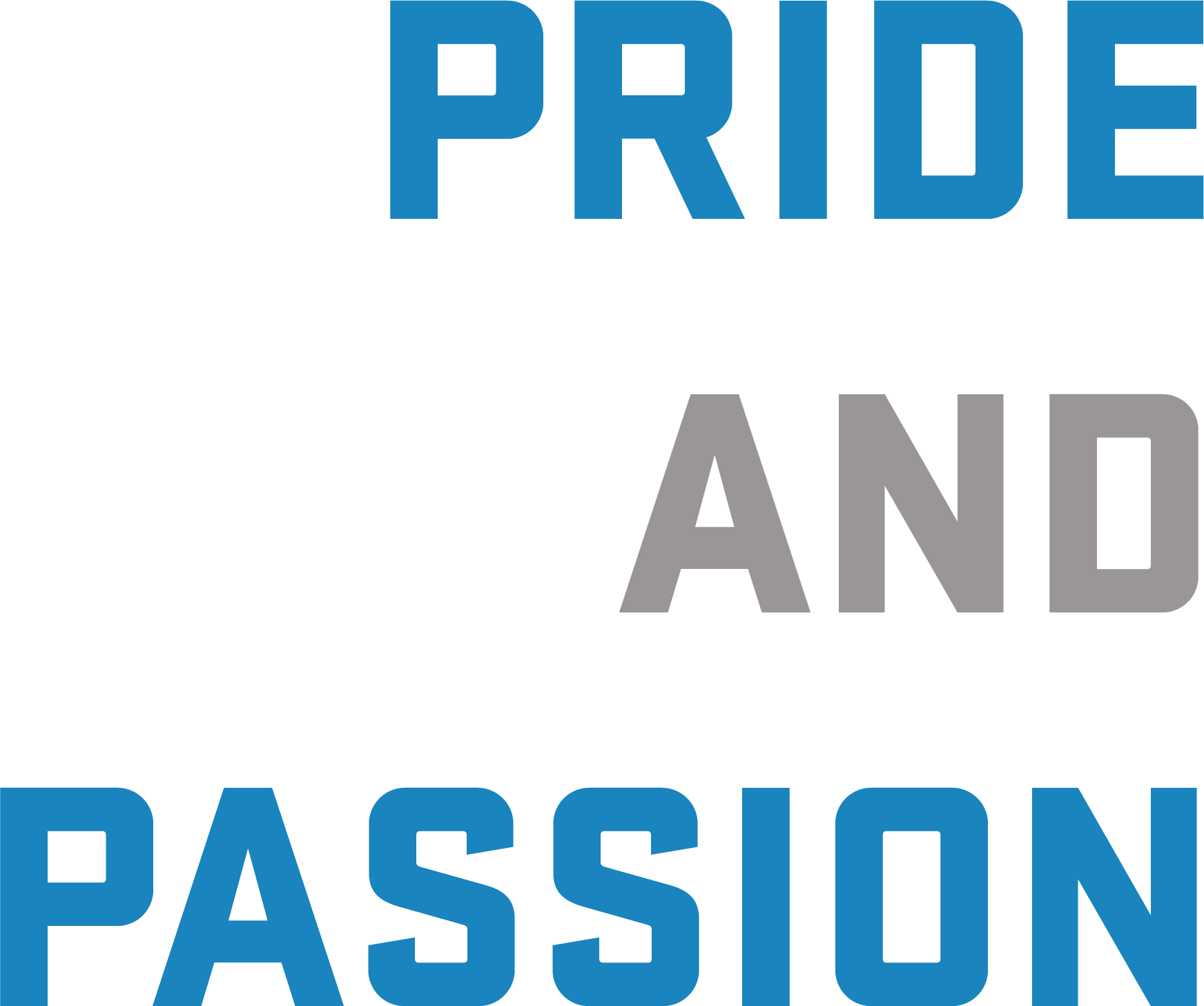
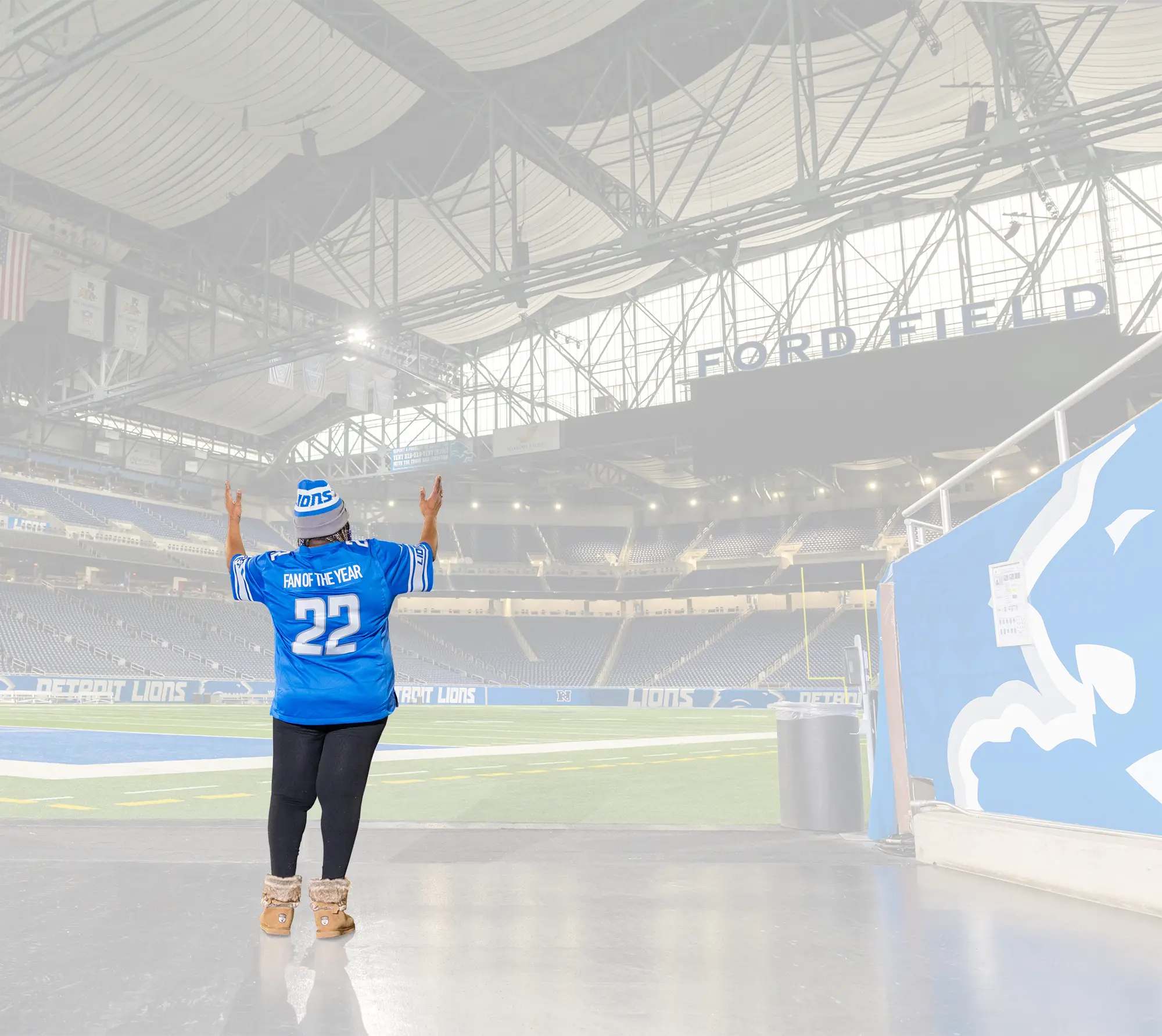
Pride and Passion
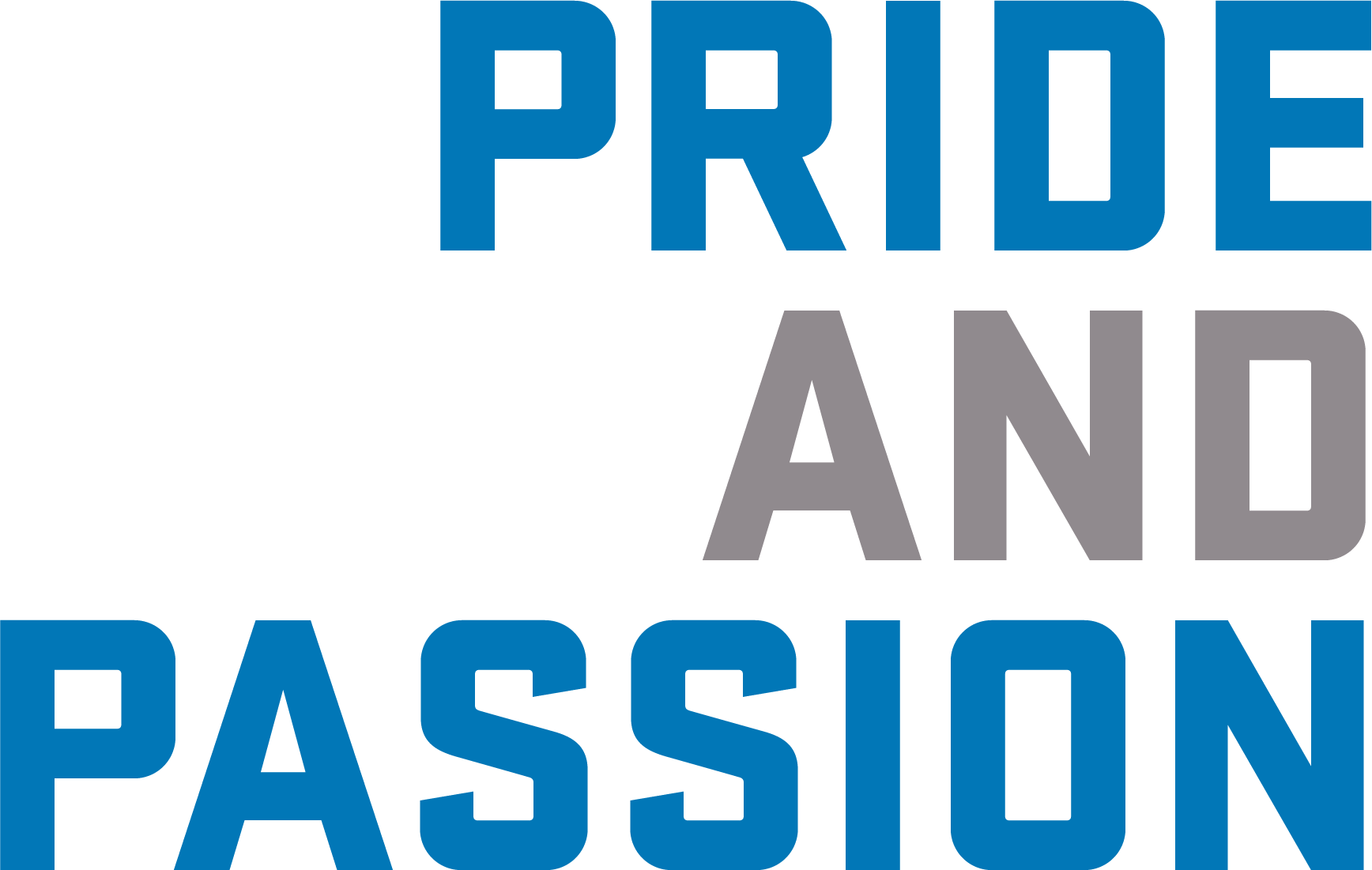
“I’m not that kind of fan,” she says humbly. “I wish I could do that, but I don’t have the money for all that. I’m the type to watch the game on TV in the senior building where I live and get other people to join in. I bring people from all around my community to sit and watch the Lions and root for them each Sunday. It’s about creating memories and networking with each other, laughing and betting on each other. That’s what the Lions represent to me.”
As far as Ford is concerned, no one roots harder, cheers more sincerely or lives more passionately for her city’s pro football franchise than she does. In her mind, she’s the team’s number one fan.
Incoming
Celebrated new professors Rhonda Y. Williams and Robyn Spencer-Antoine share their excitement about life in the city and researching Detroit’s rich grassroots history.
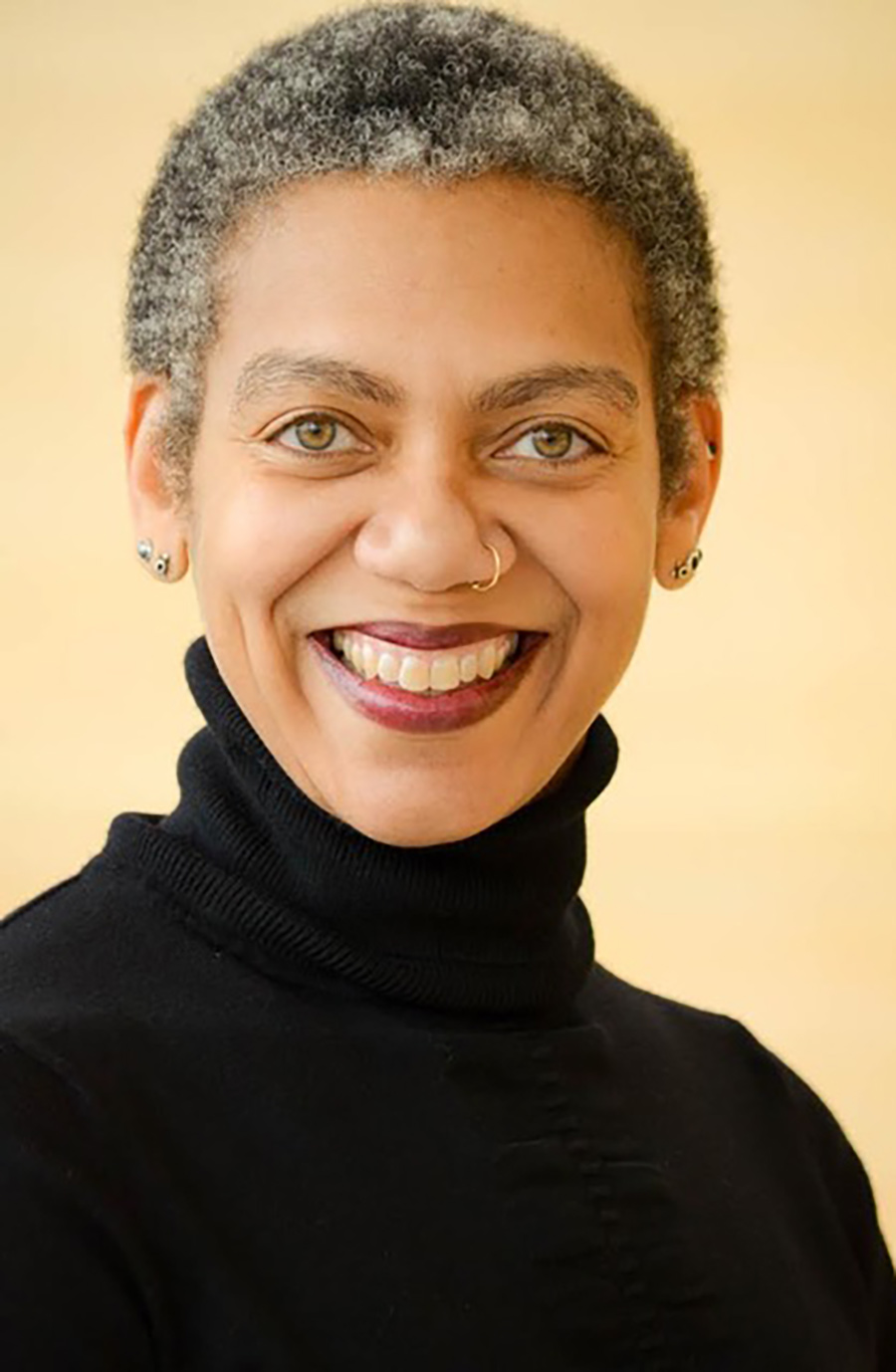
Rhonda Y. Williams, Wayne State University’s incoming Coleman A. Young Endowed Chair in the Department of African American Studies, shares inspiration, expectations ahead of autumn arrival
One that significantly swayed her was the late Detroit mayor Coleman A. Young — or, more accurately, his legacy.
“I took another look at the job posting and said, ‘Coleman A. Young: Detroit iconoclast, civil right activist, social justice guy,’” Williams recalled. “It was the energy, the career, the kinds of things Coleman Young stood up for — the idea that African Americans and labor deserved equality, that people deserved to have resources to live, that white supremacy was not to be dealt with passively, that racial inequality had to be challenged. Those things spoke to me.”
Fittingly, Williams joined the Wayne State faculty as the Coleman A. Young Endowed Chair in the Department of African American Studies, where she plans to focus on humanistic research and develop working relationships with Detroit’s formidable activist community to help further social justice causes.
“I did some serious introspection about whether this opportunity is a fit for me,” Williams said. “I asked myself: Is this a move I want to make? What kind of relationships will I have? What kind of things can I contribute when I get there? How will I make good use of the things I’m excited about around social justice? Also, I’ve thought about wellness as part of social justice movements, about how that has shown up or has not shown up. What kind of support systems exist or don’t exist today? All of those things came together to kind of create this excitement and energy around being at Wayne State.”
Ollie Johnson, Ph.D., chair of the Department of African American Studies, said he and others are excited about Williams’ arrival.
Wayne State Guarantee

Last year, 46% of first-year Wayne State students had zero out-of-pocket expenses for their tuition and fees thanks to the university’s tuition pledge programs. The guarantee will push that number to 50%.
“Wayne State has a long history of being a university of access and opportunity, and now our commitment to making a college degree affordable comes in the form of a guarantee,” said then-Wayne State University President M. Roy Wilson, who retired months after the program was announced in March.
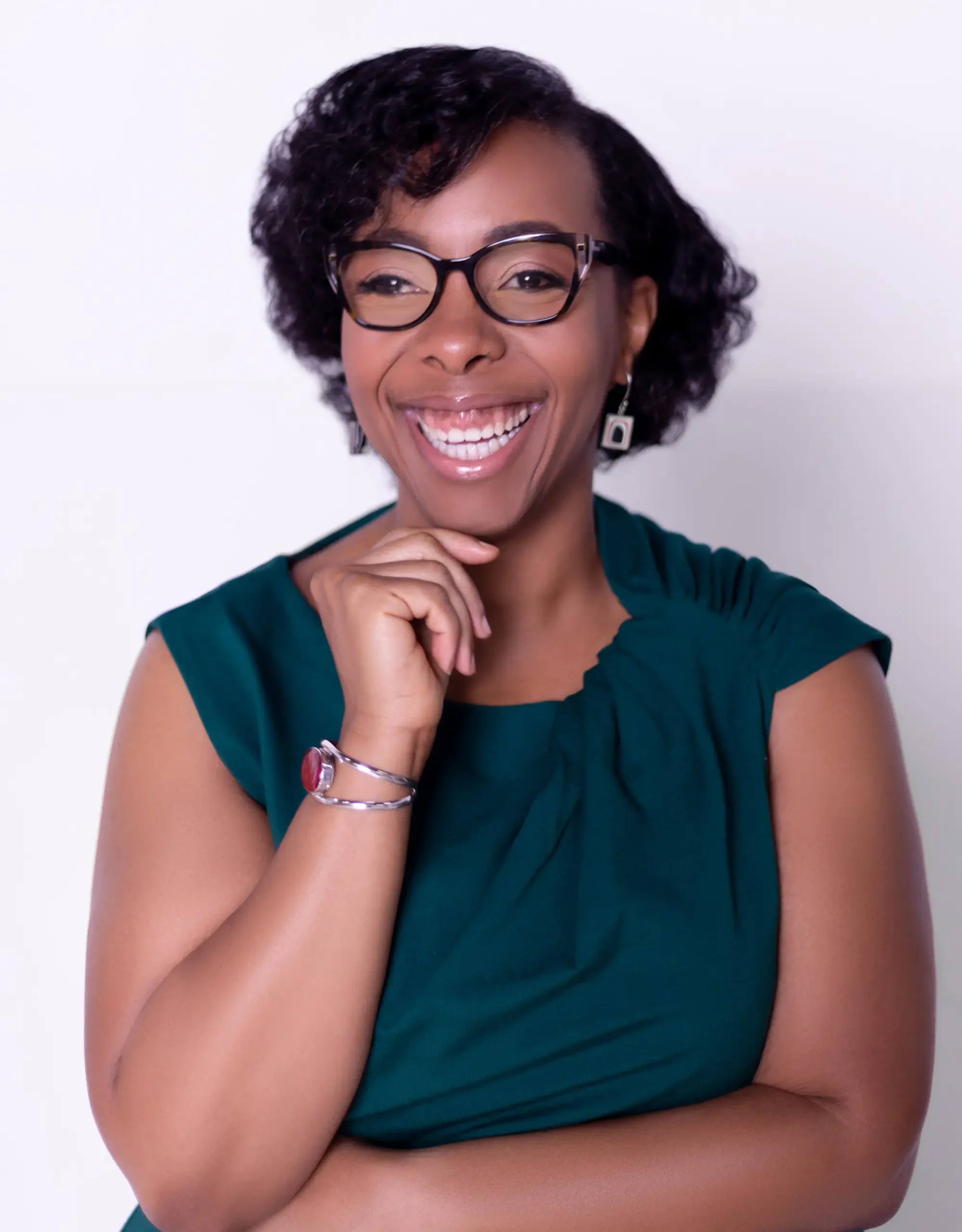
EngageD Q&A
Recently, Williams published her latest book, I Saw Death Coming: A History of Terror and Survival in the War Against Reconstruction, a searing examination into the often-perilous social circumstances that constantly menaced Black Americans’ lives during Reconstruction.
Warriors sat down with Williams to discuss the research that drove her newest work and the current implications her findings hold for a nation that continues to grapple with racist attacks, social injustice and the ongoing trauma stemming from America’s “original sin.”
by the numbers




